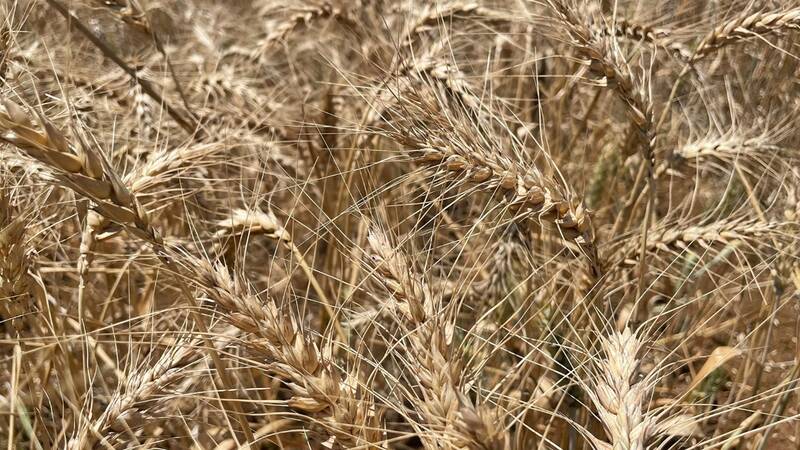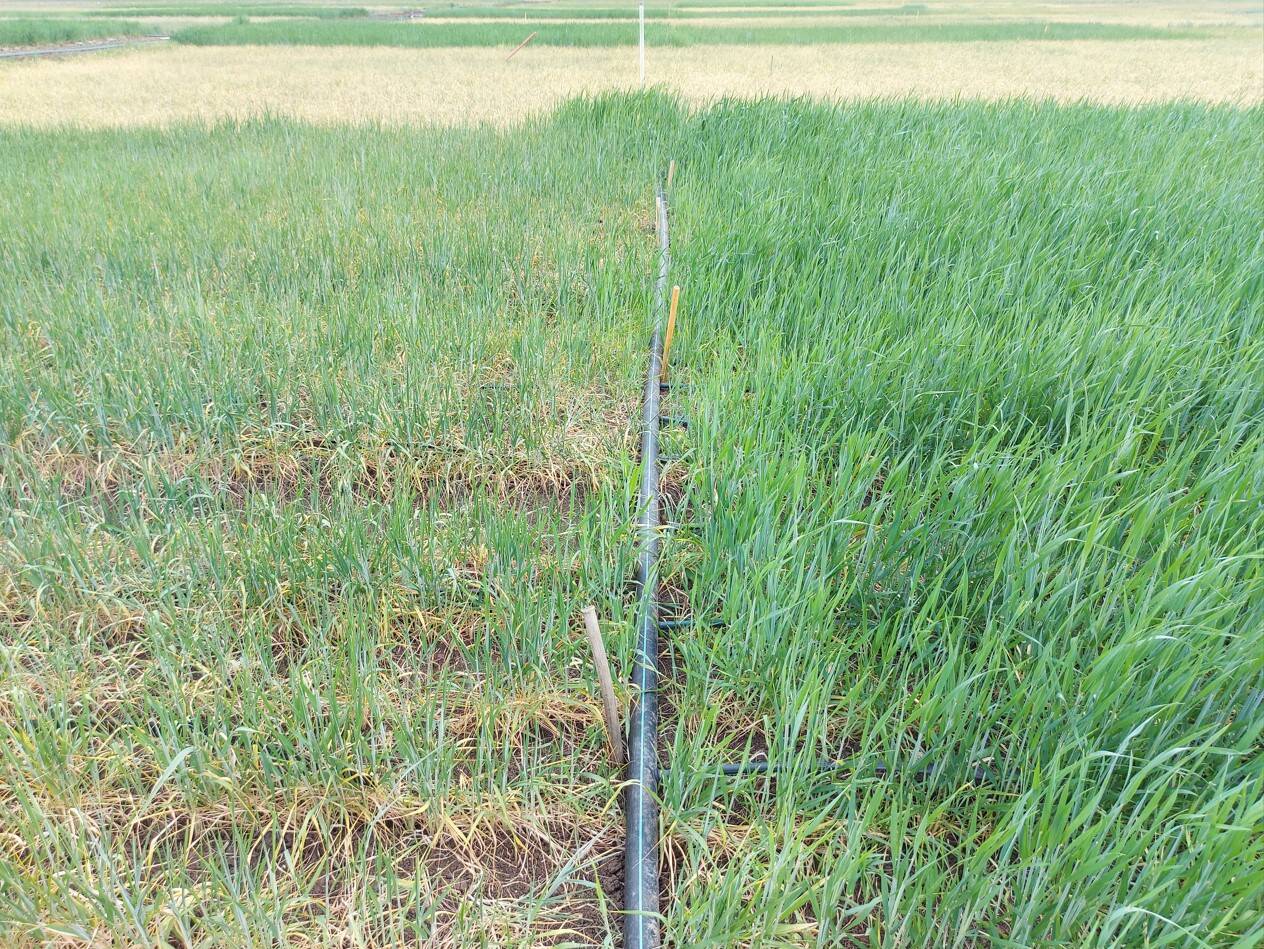June 4, 2024

Wheat
A new ICARDA study shows how applying key agri-innovations can strengthen dryland rainfed production systems in the face of accelerating climate change.
The Middle East and North Africa (MENA) region predominantly relies upon rainfall to service its agricultural production systems. Still, in today's climate change environment, such reliance is increasingly risky for farmers in the region.
In Morocco, where about 85% of the wheat area is rainfed, a recent ICARDA analysis (Devkota et al., 2023) of four diverse rainfall growing seasons reveals that total rainfall is the key determinant of successful rainfed wheat yields. However, as climate change accelerates, increasing rainfall variability and weather shocks result in poor crop yields, unstable yield performance, and even complete crop failures, threatening food security across the country. The rising frequency of droughts poses significant challenges to the economy, agriculture, and food security while also accelerating soil degradation and reducing soil fertility for future crops.
However, key ICARDA innovations such as resilient wheat varieties, supplemental irrigation, and adjusting sowing time have the potential to combat today's climate and man-made impacts.
The annual productivity for wheat averaged 1.85+0.63 t ha-1 from 2012 to 2022 (FAOSTAT, 2023). Our recent findings indicate that, in farmer-managed fields, the average productivity of wheat can increase by at least 1.5t ha-1 in severe drought conditions with the adoption of appropriate variety coupled with the provision of life-saving supplementary irrigation, assuming at least a 50% yield improvement in farmer-managed fields based on the results achieved at experimental stations. This represents a significant potential improvement from the current national average, demonstrating the impact of targeted irrigation practices.
 Left side: rainfed - Right side: with supplemental irrigation
Left side: rainfed - Right side: with supplemental irrigation
Analysis of the 2012-2021 FAOSTAT data shows that Morocco imports an average of 44% of its wheat grain to meet the country's needs. However, with the potential to increase average yields through precise supplementary irrigation, total annual wheat production could rise by 23%, reducing imports by 35%.
ICARDA's research highlights that strategic innovations, such as supplemental irrigation and resilient crop varieties, can significantly improve agricultural productivity in dryland regions. These advancements not only strengthen local food security but also decrease reliance on grain imports, fostering economic stability.
The future of food security in dryland regions hinges on our capacity to adapt and innovate. By adopting targeted agricultural practices, we can adjust to changing climatic conditions, boost crop yields, and secure a resilient and prosperous future for farmers and nations.
Further Readings:
- Devkota, M., K. P. Devkota, M. Karrou, V. Nangia. 2023. Genotype and agronomic management interaction to enhance wheat yield and water use efficiency in the Mediterranean rainfed environment of Morocco: I. Field data analysis. European Journal of Agronomy. Volume 151. https://doi.org/10.1016/j.eja.2023.126972. (https://hdl.handle.net/10568/132068
- Devkota, K., M. Devkota*, R. Moussadek, V. Nangia. 2023. Genotype × environment × agronomic management interaction to enhance wheat yield in the Mediterranean rainfed environments of Morocco: II. Process-based modeling. European Journal of Agronomy. Volume 151. https://doi.org/10.1016/j.eja.2023.126973. https://hdl.handle.net/20.500.11766/68690)
- Supplemental Irrigation: A Promising Climate-resilience Practice for Sustainable Dryland Agriculture | ICARDA